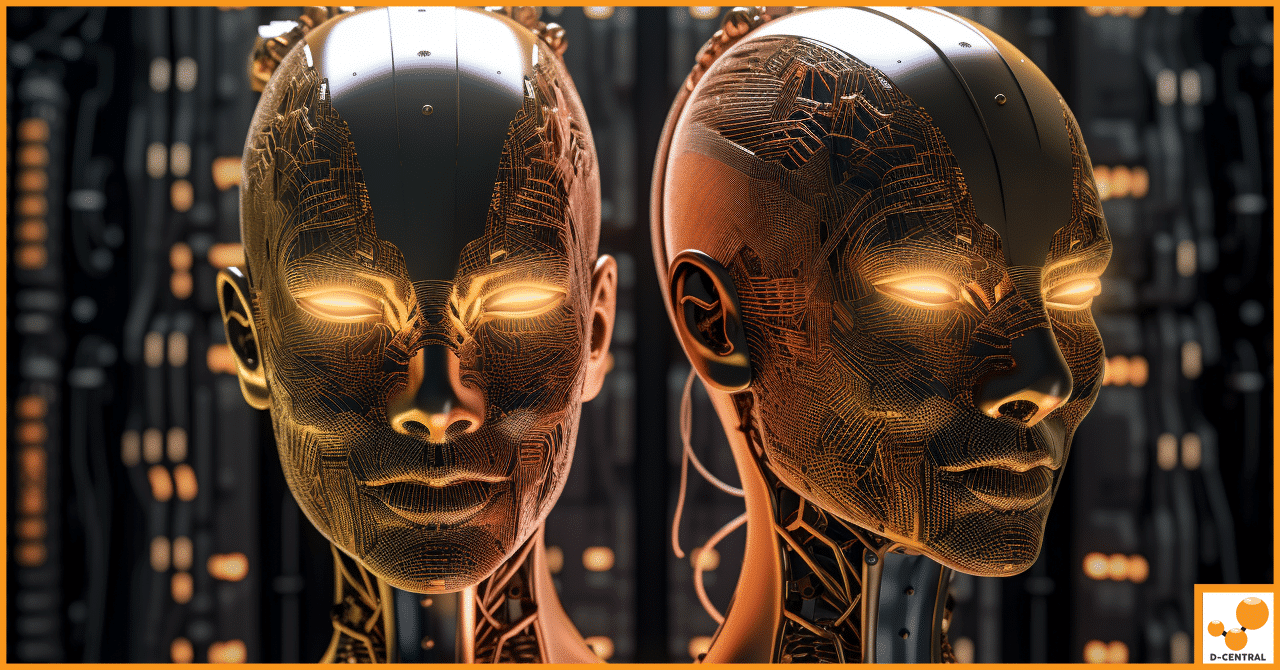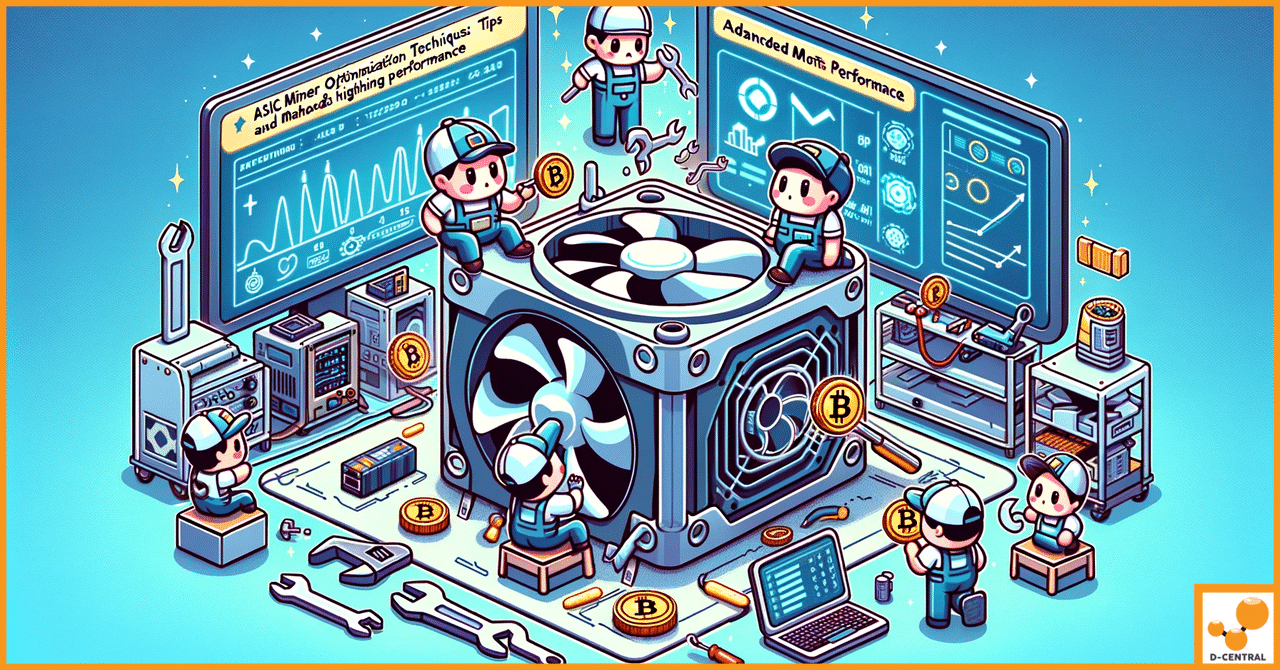
The Untapped Potential: Advocating for Bitcoin Mining as a Key to Quebec’s Energy Future
Quebec, a province rich in natural resources and environmental beauty, stands at the forefront of renewable energy production in Canada.
4479 Desserte Nord Autoroute 440, Laval, QC H7P 6E2

In the digital age, technology is evolving at an unprecedented pace, transforming the way we live, work, and interact with one another. Two revolutionary technologies stand out among the rest: Bitcoin, the world’s first and most popular cryptocurrency, and Artificial Intelligence (AI), which is poised to change the way we think about and interact with machines. These innovations have the potential to reshape our world, by decentralizing power structures, enhancing digital privacy, and empowering individuals to achieve financial independence.
Bitcoin, the brainchild of a mysterious figure known as Satoshi Nakamoto, emerged in 2009 as an alternative to traditional, government-backed currencies. It operates on a decentralized network that relies on blockchain technology to record and verify transactions. This groundbreaking system enables users to transfer value across borders without the need for intermediaries such as banks or payment processors.
AI, on the other hand, refers to the development of computer systems that can perform tasks that would typically require human intelligence. These tasks range from understanding natural language to recognizing patterns and making decisions. AI-driven technologies such as machine learning, automation, and data analysis have already begun to transform industries like healthcare, finance, and transportation.
The convergence of Bitcoin and AI has given rise to a new wave of innovation at the intersection of finance and technology. Cryptocurrency and AI are complementary technologies that have the potential to drive the development of decentralized systems, enhance digital privacy, and empower individuals to achieve financial independence.
One of the most significant ways that AI and cryptocurrency intersect is through the development of decentralized finance (DeFi) platforms. These platforms leverage blockchain technology and smart contracts to create financial products and services that operate outside the traditional financial system, offering users more control and autonomy over their assets.
Another critical intersection between AI and cryptocurrency lies in the potential for AI-driven advancements in blockchain technology. Machine learning algorithms can improve the efficiency of blockchain networks by optimizing transaction validation processes, while AI-driven security measures can help protect users against hacks and other cybersecurity threats.
Decentralized finance, or DeFi, is a rapidly growing sector within the cryptocurrency space that aims to provide users with financial services outside of traditional banking systems. By leveraging blockchain technology and smart contracts, DeFi platforms enable users to borrow, lend, and trade digital assets without the need for intermediaries like banks or payment processors.
One of the primary benefits of DeFi is that it allows users to maintain full control over their assets, as funds are not held by any central authority. This level of control and autonomy empowers users to manage their own financial destiny, rather than relying on the whims and decisions of traditional financial institutions.
Additionally, DeFi platforms often offer users higher interest rates on their investments than traditional banks, due to the absence of overhead costs associated with brick-and-mortar operations. This further enhances the financial freedom offered by DeFi platforms, as users can potentially grow their wealth at a faster pace than they would through traditional banking channels.
Artificial intelligence has the potential to transform blockchain technology and related applications like smart contracts. Machine learning algorithms can be used to optimize transaction validation processes in blockchain networks, leading to increased efficiency and reduced transaction costs.
For instance, AI-driven consensus mechanisms could replace the energy-intensive Proof of Work (PoW) system used by Bitcoin, with more efficient alternatives such as Proof of Stake (PoS) or Delegated Proof of Stake (DPoS). These new consensus mechanisms would not only make blockchain networks more sustainable but also increase transaction throughput and reduce latency.
In the realm of smart contracts, AI can be used to automate complex decision-making processes, allowing for more sophisticated and dynamic contract functionality. AI-driven smart contracts could be used to automate business processes, manage supply chain logistics, or even create decentralized autonomous organizations (DAOs) that operate with minimal human intervention.
Machine learning is a subset of AI that involves the development of algorithms that can learn and improve from experience, without being explicitly programmed to do so. This technology has the potential to revolutionize industries by automating complex tasks, optimizing workflows, and making more accurate predictions based on data analysis.
In the context of cryptocurrency and blockchain technology, machine learning can be used to optimize trading strategies, detect fraudulent transactions, and improve network performance. For instance, machine learning algorithms can be used to analyze market data and identify patterns that would be difficult for a human trader to discern, enabling more effective trading strategies.
Additionally, machine learning techniques can be used to detect anomalous or fraudulent transactions on blockchain networks, helping to maintain the integrity and security of these systems. By automating these tasks, machine learning can contribute to the overall efficiency and security of the digital revolution driven by cryptocurrency and AI.
One of the most significant challenges faced by individuals and businesses in the digital age is the growing threat to privacy and security. Cyberattacks, data breaches, and surveillance by governments and corporations have led to a heightened awareness of the need for robust digital privacy and security solutions.
AI and blockchain technologies have the potential to address these concerns by offering innovative solutions to enhance privacy and security. Blockchain technology, for instance, relies on cryptographic techniques to secure transactions and user data, making it difficult for malicious actors to tamper with or compromise the system.
AI-driven security measures can further enhance the privacy and security of blockchain networks by automating the detection and prevention of cyberattacks. For example, AI algorithms can be used to identify and block suspicious transactions or network activity in real-time, helping to maintain the integrity of the system.
Data analysis and algorithms play a crucial role in the digital transformation driven by cryptocurrency and AI. These technologies enable businesses and individuals to make data-driven decisions, optimize processes, and gain valuable insights that would otherwise be hidden in vast amounts of raw data.
In the context of cryptocurrency, data analysis can be used to identify market trends, optimize trading strategies, and assess the risk associated with various digital assets. Machine learning algorithms can be used to analyze historical price data and identify patterns that may indicate future price movements, enabling more informed investment decisions.
Similarly, AI-driven data analysis can help businesses optimize their operations by identifying inefficiencies, uncovering hidden opportunities, and predicting future trends. By leveraging data analysis and algorithms, businesses can become more agile and responsive to the ever-changing digital landscape, ensuring their continued success in the digital age.
As we continue to embrace the new era of digital autonomy, various technological innovations are shaping the future of Bitcoin and AI. Some of these innovations include the development of decentralized systems like the Lightning Network, which aims to improve the scalability and efficiency of the Bitcoin network, and the integration of AI-driven solutions to enhance the functionality of blockchain networks and smart contracts.
Moreover, advancements in AI research are leading to the development of increasingly sophisticated algorithms and machine learning techniques, which can be used to automate complex tasks, optimize processes, and enhance the security of digital systems.
These technological innovations, coupled with the growing adoption of cryptocurrency and AI-driven technologies, are paving the way for a future in which individuals can achieve financial independence and digital sovereignty.
Financial independence and digital sovereignty are two interconnected goals that can be achieved through the adoption of cryptocurrency and AI-driven technologies. Financial independence refers to the ability of an individual to manage their own financial affairs without reliance on traditional financial institutions, while digital sovereignty refers to the ability to control one’s own digital identity and data.
Bitcoin and other cryptocurrencies empower individuals to achieve financial independence by allowing them to transact, save, and invest outside of the traditional financial system. Moreover, DeFi platforms offer a range of financial products and services that cater to the needs of individuals seeking greater financial freedom and autonomy.
Similarly, AI-driven technologies can empower individuals to achieve digital sovereignty by enhancing their control over their digital identities and data. Blockchain-based identity management solutions, for instance, allow users to create and control their own digital identities, ensuring that their personal information remains private and secure.
As we look towards the future, it is clear that intelligent systems and digital assets like Bitcoin will play an increasingly important role in the global economy. The widespread adoption of cryptocurrency and AI-driven technologies has the potential to reshape industries, redefine power structures, and empower individuals to achieve financial independence and digital sovereignty.
In the coming years, we can expect to see the continued growth and development of decentralized systems, as well as the integration of AI-driven solutions into the blockchain and cryptocurrency space. Moreover, we can anticipate the emergence of new digital assets and intelligent systems that leverage the combined power of cryptocurrency and AI to create innovative and disruptive solutions to the challenges faced by individuals and businesses in the digital age.
In conclusion, the convergence of Bitcoin and AI represents a new era of digital autonomy, where individuals and businesses have the power to control their own financial destiny and digital identity. The intersection of these two technologies has the potential to drive the development of decentralized systems, enhance digital privacy and security, and empower individuals to achieve financial independence and digital sovereignty.
As we continue to embrace this new era of digital autonomy, it is essential that we remain vigilant and proactive in addressing the challenges posed by these technologies. We must take steps to ensure that the benefits of cryptocurrency and AI-driven technologies are accessible to everyone, regardless of their socioeconomic status or geographical location. We must also work to mitigate the risks associated with these technologies, such as the potential for fraud, cyberattacks, and data breaches.
By embracing the new era of digital autonomy with Bitcoin and AI, we have the opportunity to create a more just, equitable, and sustainable world, where individuals have greater control over their own lives and destinies. It is up to all of us to seize this opportunity and work towards a brighter future for ourselves and future generations.
Q: What is the intersection of cryptocurrency and artificial intelligence?
A: The convergence of Bitcoin and AI has given rise to a new wave of innovation at the intersection of finance and technology. Cryptocurrency and AI are complementary technologies that have the potential to drive the development of decentralized systems, enhance digital privacy, and empower individuals to achieve financial independence.
Q: How does decentralized finance contribute to financial freedom?
A: Decentralized finance (DeFi) platforms allow users to borrow, lend, and trade digital assets without the need for intermediaries like banks or payment processors. This level of control and autonomy empowers users to manage their own financial destiny, rather than relying on the whims and decisions of traditional financial institutions.
Q: What are some AI-driven advancements in blockchain and smart contracts?
A: Artificial intelligence has the potential to transform blockchain technology and related applications like smart contracts. Machine learning algorithms can be used to optimize transaction validation processes in blockchain networks, leading to increased efficiency and reduced transaction costs. AI-driven smart contracts could also automate complex decision-making processes, allowing for more sophisticated and dynamic contract functionality.
Q: How does machine learning contribute to the digital revolution?
A: Machine learning technology has the potential to revolutionize industries by automating complex tasks, optimizing workflows, and making more accurate predictions based on data analysis. In the context of cryptocurrency and blockchain technology, machine learning can be used to optimize trading strategies, detect fraudulent transactions, and improve network performance.
Q: How do AI and blockchain enhance digital privacy and security?
A: AI and blockchain technologies have the potential to address growing privacy and security concerns by offering innovative solutions to enhance privacy and security. Blockchain technology relies on cryptographic techniques to secure transactions and user data, making it difficult for malicious actors to tamper with or compromise the system. AI-driven security measures can further enhance the privacy and security of blockchain networks by automating the detection and prevention of cyberattacks.
Q: What is the role of data analysis and algorithms in digital transformation?
A: Data analysis and algorithms play a crucial role in the digital transformation driven by cryptocurrency and AI. These technologies enable businesses and individuals to make data-driven decisions, optimize processes, and gain valuable insights that would otherwise be hidden in vast amounts of raw data.
Q: What are the technological innovations shaping the future of digital autonomy?
A: Various technological innovations are shaping the future of Bitcoin and AI, such as the development of decentralized systems like the Lightning Network, which aims to improve the scalability and efficiency of the Bitcoin network, and the integration of AI-driven solutions to enhance the functionality of blockchain networks and smart contracts. Advancements in AI research are also leading to the development of increasingly sophisticated algorithms and machine learning techniques that can be used to automate complex tasks, optimize processes, and enhance the security of digital systems.
Q: How can individuals achieve financial independence and digital sovereignty through cryptocurrency and AI-driven technologies?
A: Bitcoin and other cryptocurrencies empower individuals to achieve financial independence by allowing them to transact, save, and invest outside of the traditional financial system. DeFi platforms offer a range of financial products and services that cater to the needs of individuals seeking greater financial freedom and autonomy. AI-driven technologies can empower individuals to achieve digital sovereignty by enhancing their control over their digital identities and data.
Q: What is the future of intelligent systems and digital assets in the global economy?
A: Intelligent systems and digital assets like Bitcoin will play an increasingly important role in the global economy. The widespread adoption of cryptocurrency and AI-driven technologies has the potential to reshape industries, redefine power structures, and empower individuals to achieve financial independence and digital sovereignty.
Q: How can we embrace the new era of digital autonomy with Bitcoin and AI?
A: By embracing the new era of digital autonomy with Bitcoin and AI, we have the opportunity to create a more just, equitable, and sustainable world, where individuals have greater control over their own lives and destinies. It is up to all of us to seize this opportunity and work towards a brighter future for ourselves and future generations.
DISCLAIMER: D-Central Technologies and its associated content, including this blog, do not serve as financial advisors or official investment advisors. The insights and opinions shared here or by any guests featured in our content are provided purely for informational and educational purposes. Such communications should not be interpreted as financial, investment, legal, tax, or any form of specific advice. We are committed to advancing the knowledge and understanding of Bitcoin and its potential impact on society. However, we urge our community to proceed with caution and informed judgment in all related endeavors.
Related Posts

Quebec, a province rich in natural resources and environmental beauty, stands at the forefront of renewable energy production in Canada.

In the ever-evolving world of digital currencies, Bitcoin stands as a pioneering force, heralding a new era of financial transactions

In an era where cryptocurrency holds a key position within the financial landscape, the ability to effectively mine digital assets